You’re about to read three chapters of a “work-in-progress” called Man on the Water. As I may never finish (though I hope I do) I’m sharing what I have because I like them and they also stand alone. Enjoy.- JHF
TOLCHESTER BEACH, 1948
MOTI SPLASHED IN THE SHALLOWS, holding on to the bow. The sand was rough and granular under his feet, the water warm and pungent with life. The wooden skiff was long, heavy, and flat-bottomed. As he pushed to and fro, a lazy inch of water sloshed gently inside over planking turned green with algae. At two years old, he knew this was a “boat” and nothing more. Rowing, maneuvering, gauging the current, sensing the inertia of a coasting vessel, none of these existed. But the air reeked of seaweed, crab shells, and brine. The flaking paint under his fingers felt hot to the touch in the white August sun. That the boat moved at all was a triumph, and Moti was a barefoot god.
Farther down the beach, the grownups were having a picnic of crabs with corn on the cob boiled over a driftwood fire. It was the sunshine of their days, the oldest of them barely forty. Had they measured up and gotten everything they wanted? For the afternoon at least, such thoughts faded in the numbing plenty. Stretching out before them, the bay was clear and clean. Mounds of seaweed lay rotting on the sand, evidence of a living deep where crabs and fishes by the millions flourished in vast green underwater nurseries. The sun was hot but comforting. There were sodas and beer, bread, butter, and fruit. The crabs were free, plucked from the sandy bottom with long dip nets from the rented rowboat. The corn, ripened in the humid summer, came from a roadside stand for almost nothing. Aside from them, the beach was empty. There was not a single piece of trash.
His father was coming, he could see that. To tie up the boat, of course, but Moti couldn’t know. Afterwards, the vessel secure, they walked back down the beach while his father held his hand. This is what I do when you are watching. The sun was lower now. It hurt Moti’s eyes to look out west across the bay. Back at the picnic fire, his mother had already scooped water from the shore and doused the flames. The embers hissed as everybody packed their things and brushed sand from their clothes.
On the long ride back to town, the evening air was heavy and warm, swarming with moths and fireflies. Through the open windows came waves of scented air: honeysuckle, cut grass, marsh, and cornfields. His trunks were damp, but they had put a towel down, and Moti fell asleep beside his mother in the back seat of his uncle’s Dodge.
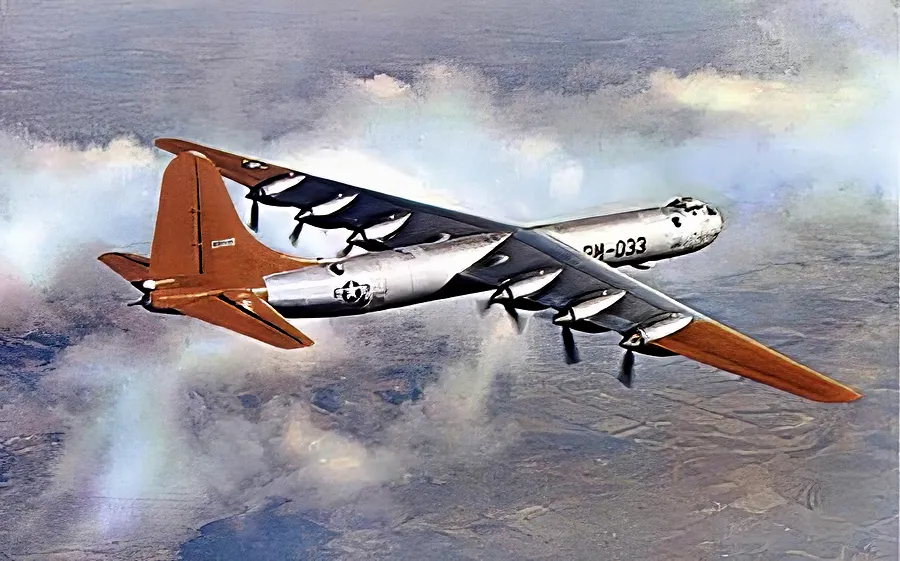
B-36
THE CREEK
THE CREEK RAN THROUGH THE WOODS beside base housing, not far from where the B-36 crews ran their engines all night long waiting for the order to take off for Russia with their A-bombs. It was neither wide nor deep, just right for five-year-olds to splash through barefoot while their mothers called them home for dinner.
The water was clear, the sandy bottom visible. He held a painted metal bucket from the seashore with a crayfish wriggling in the bottom. The animals held a furious attraction for him and were easy to catch in shallow pools around the bends. He knew he couldn’t keep them—”Where are you going to put them?”—but he was always too excited not to try. The shiny dark brown creatures were irresistible talismans from a place he wanted to be. There was nothing like this in the world of Jesus loves you, eat your goddamn peas, and home was like a jail.
“Motiii!” someone called, as if the boy would follow a so tentative a summons. The creek turned a sharp bend just a little farther where the banks rose above his head. The water looked deeper, wider. He had to wander on. As he came around the curving stream, a slab of mossy dirt gleaming in a patch of sunlight caught his eye. There was a tiny mushroom growing on it: he pulled it off and touched it to his upper lip. The end was soft and cool, like the finger of a ghost.
“Moti!”
He heard it now and shivered. Mother would be angry. Daddy had a belt.
Ever so gently but wasting no more time, he tipped the bucket upside down and let the creature splash into the creek. It scooted a few feet away and stopped, then turned slowly upstream, antennae waving in the current. Moti thought it might have looked at him and told him that it bore no grudge. A distant screen door slammed: someone could be coming after him.
Pulling himself away with some difficulty, he scrambled up the bank and found the path. There was poison ivy here, and poison sumac. Emerging from the woods, he saw his father light a cigarette beside the wooden stairs that led to their apartment. The thirty-year-old pilot was still dressed in summer khakis with wet spots under the arms. He exhaled with a whispered breath, clacked his Zippo lighter shut, and slipped it into the right front pocket of his pants. Somewhere overhead, a single piston-engined airplane droned. He raised his eyes to look, squinting in the sun, and when he did, he spied young Moti coming quickly across the grass.
“Hurry up, c’mon, get in here, your supper’s getting cold!” he called out, then turned to go inside.
Moti hurried to the door behind him. The humid air was full of cooking smells that drifted out through open windows where other children had to sit until released to play tag and hide-and-seek before the evening darkness fell. The magic hour when he and all his friends were on their own, free to be the savages they were, all sweat and laughs among the fireflies, while fathers sat outside with drinks and mothers monitored the distant shrieks.
That summer had brought an invasion of Japanese beetles, too. As they were more numerous and easier to catch, the way to win with beetles was to see who could collect the most. The grownups encouraged this activity since it helped to save the roses that were planted everywhere, and useful children were highly prized. The boy excelled at plucking the sturdy insects from the leaves. They held on tightly with tiny legs that pricked his fingers when they grabbed, but Moti had no fear and found the creatures beautiful: an empty Coca-Cola bottle full of them was like a glass of jewels.
On this evening after supper, he completely filled one. Running back to show his parents, he slipped and fell down hard against the curb. The heavy bottle shattered, and a jagged piece of glass sliced deep into his wrist. Abandoning the now liberated prey, he ran crying into the living room where his parents were entertaining. The grownups gasped and put down their martinis. As Moti wailed and dripped blood on the carpet, his mother ran into the bathroom, came back with a wad of toilet paper, and had him hold it pressed against the wound until the bleeding stopped. When that was done, she wrapped it up with adhesive tape and gauze, kissed him on the forehead, and sent him off to early bed.
As he lay there in the almost-dark, his bandaged wrist still throbbing, Moti heard his playmates thinly through the open window. The hunt had moved on to the grassy field beyond, where there were fireflies and room to play a breathless game of tag. The squeals and shouting sounded like a flock of birds or yelping pups. Moti knew that he was missing out but held on to a dream of shiny dark brown crayfish in the pail, the mushroom and the moss, and what might lay around the bend where no one, least of all his parents or his playmates, had ever dared to go.
Drifting off to sleep, the boy thought only of the creek.
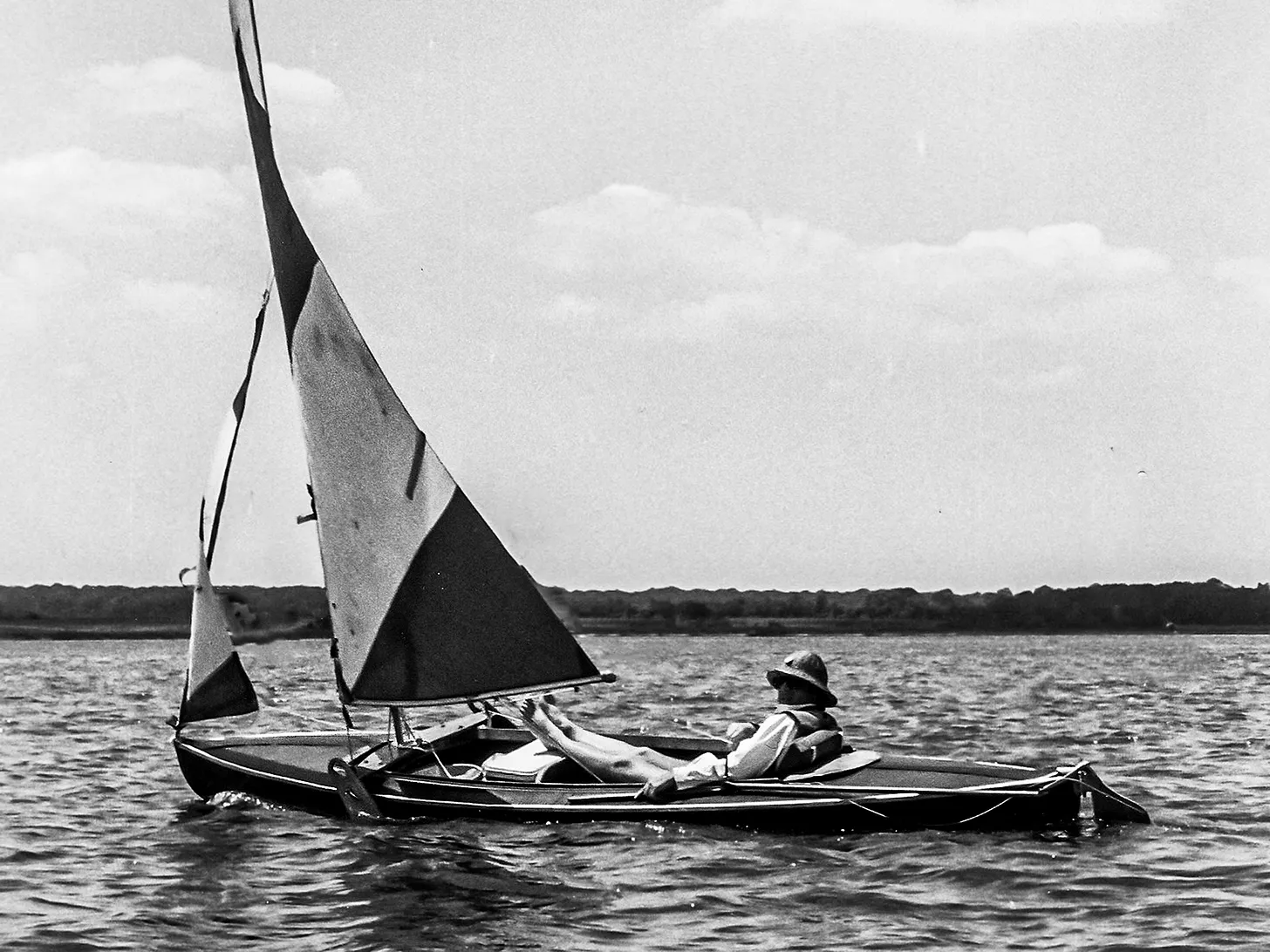
Folbot “Big Glider” kayak with sailing rig
NOT WILD ENOUGH
THE THING DRIFTED SLOWLY INTO VIEW on the wide glassy surface of the river: a dead Canada goose floating half-submerged on its back as if it had just fallen from the sky. Frozen in rigor mortis, the tips of its partly folded wings acted like tiny sails, spinning it gently in the fitful breeze on its solitary way downstream. The air was mostly still and warm, humid in the late October pause before the autumn cold fronts tore the leaves from turning trees. The sky was swelling with darkening clouds. Soon the thunder would begin to rumble, driving him to shore. Reluctantly he turned around and began to paddle back upstream. Thinking of the goose once more, he twisted his head to look over his shoulder, but the apparition was already gone.
The large kayak shot ahead with every stroke. He loved the way the ripple of his wake spread wide and long behind him, as if he were the only one to ever paint a picture of his passing on the river. When he was out there on the water, especially this lonesome stretch with forest reaching to the bank, he felt a kinship with the Indians before the English came, paddling their dugouts home heaped high with oysters, fish, and other game. The presence of any other boatman broke the spell, so he was careful to schedule outings for weekday afternoons when he might have the river to himself. But now the landing was in sight. The scrunch of bow on sand was how it always ended, final and a little sad. How different from the promise of a launch, the moment when the stern slid free.
The tidal river opened up here, far too wide to recognize a person sailing up the channel, and Moti had the landing to himself. A bit of cornfield past the driveway, forest growing to the shore. On either side, a strip of marsh to frame the little patch of beach. He swung his legs over the side, found the sandy bottom, and stood to look around. His truck sat unmolested in the grass not fifty feet away. Moti backed the homemade trailer to the sand, hoisted the bow up onto the rear, and waded to the stern. With an unheard grunt, he lifted the kayak free of the river and shoved it forward into place. The effort loosed a rivulet of sweat that ran down over his glasses before he could reach up and wipe it away. A deer fly landed on his arm and died a second later. At least it isn’t raining yet, he thought, and realized how tired he was. He stood there for a moment, remembering the goose and how he’d tell the story. In the shallow water at his feet, a tiny crab shell shivered in the current and moved on.
Moti climbed into the cab of the old brown Ford and turned the key. The big straight six did not disappoint and dropped into a clattering fast idle. As he pulled out onto the unmarked county road, the trailer hit a bump and cargo shifted. Not enough to make him stop, but he would have to watch the rear-view mirror all the same, past stubble, pastures, woods, and fields where dry stalks rattled in the rising wind. Here and there a combine labored into evening, spewing golden kernels into open trucks to beat the storm, while nearby houses sat like square white pumpkins in a sea of grass.
Moti drove along the back roads, happy to be moving. He didn’t feel a different kind of wind inside his belly that pushed against his secret thoughts, spinning truck,, house, and everything he loved like feathers in the storm. His life was none of his own business but he played along pretending to decide.
By the time he pulled into the driveway, the maples in the yard were heaving in the gusts. Dry leaves blew across the gravel in fits and starts but only one direction. There were sheets of rain beyond the woods and cold air tickled on his bare tanned arms. Moti unhitched the trailer, lifted it by the tongue, and walked it back beside the garage. He’d almost lost the kayak in his laziness and needed to find the tie-down straps again before he grabbed his gear and walked up to the steps. The last thing he heard before the screen door slammed was honking from a flock of geese he couldn’t see, flying low and fast before the wind, haunting and nostalgic all at once, before they turned and gathered for the long trip home.
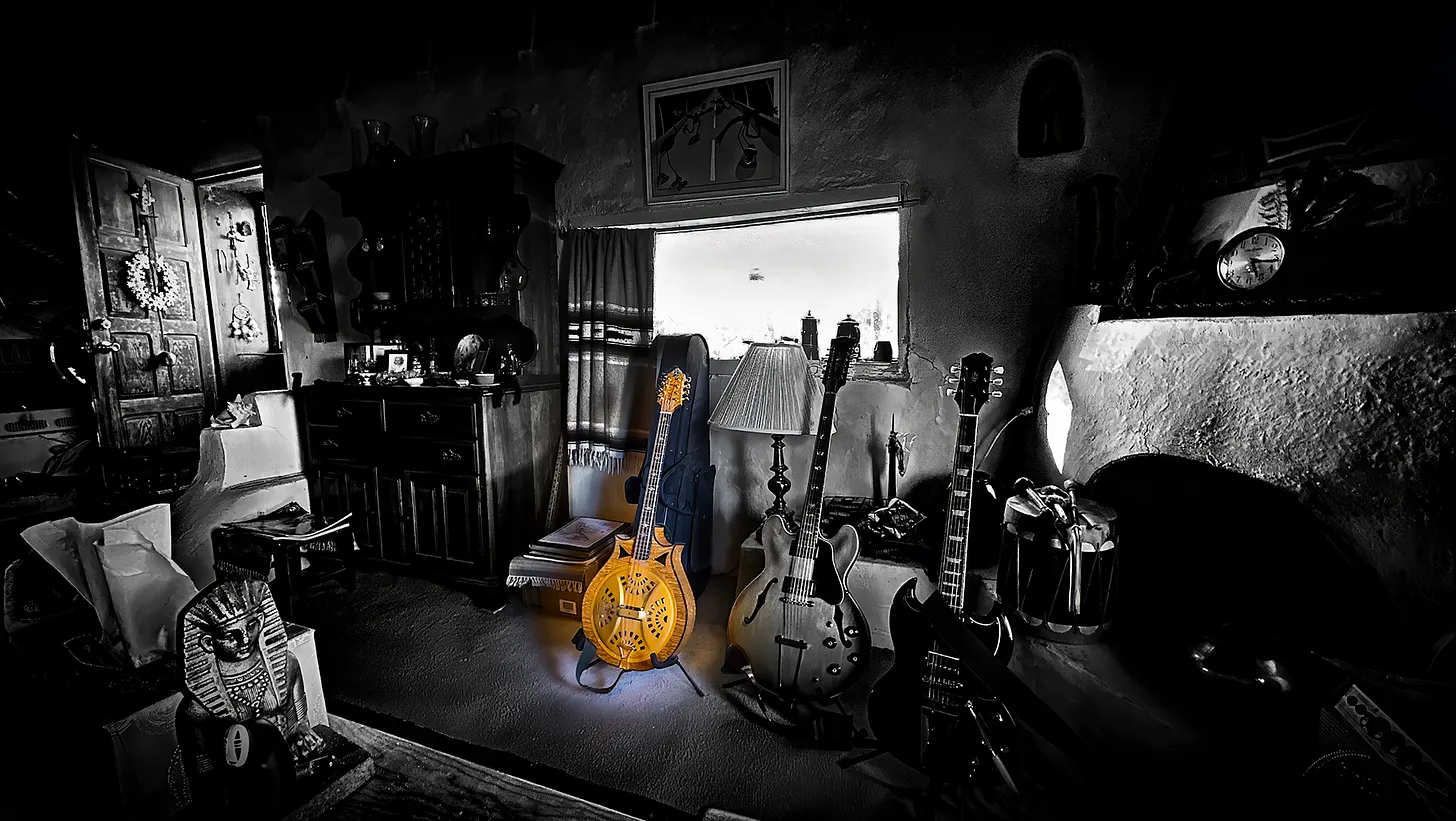

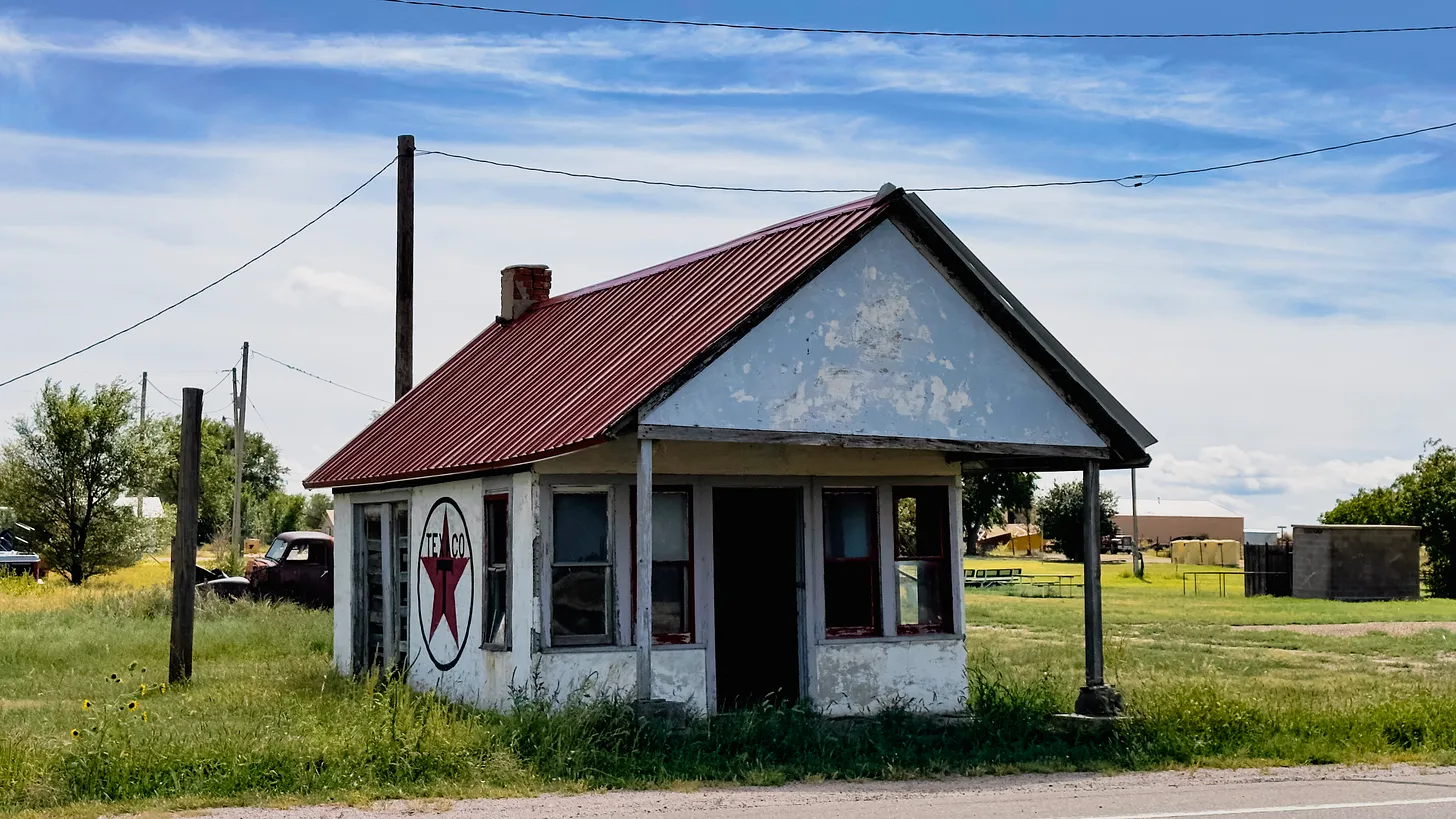
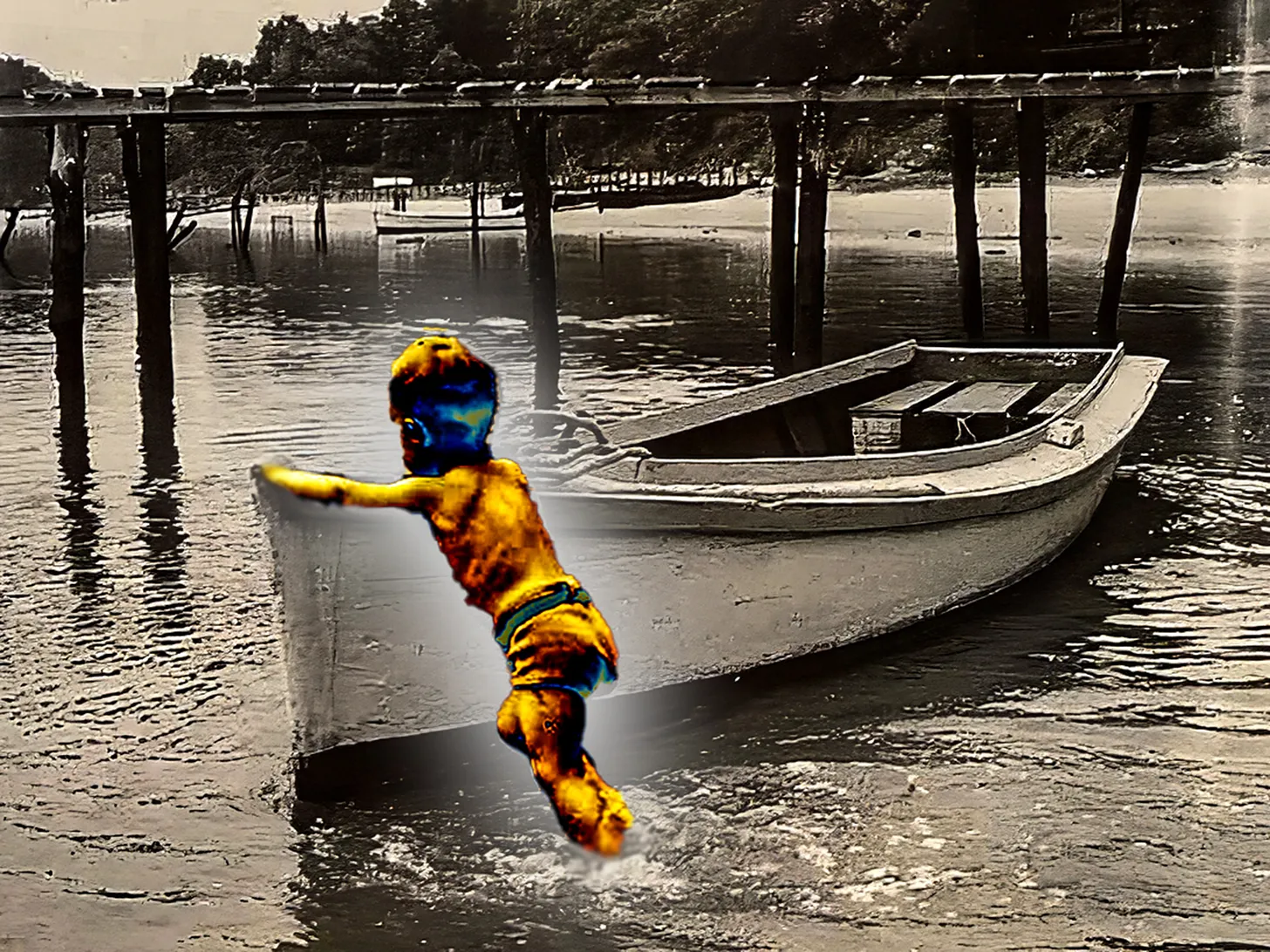




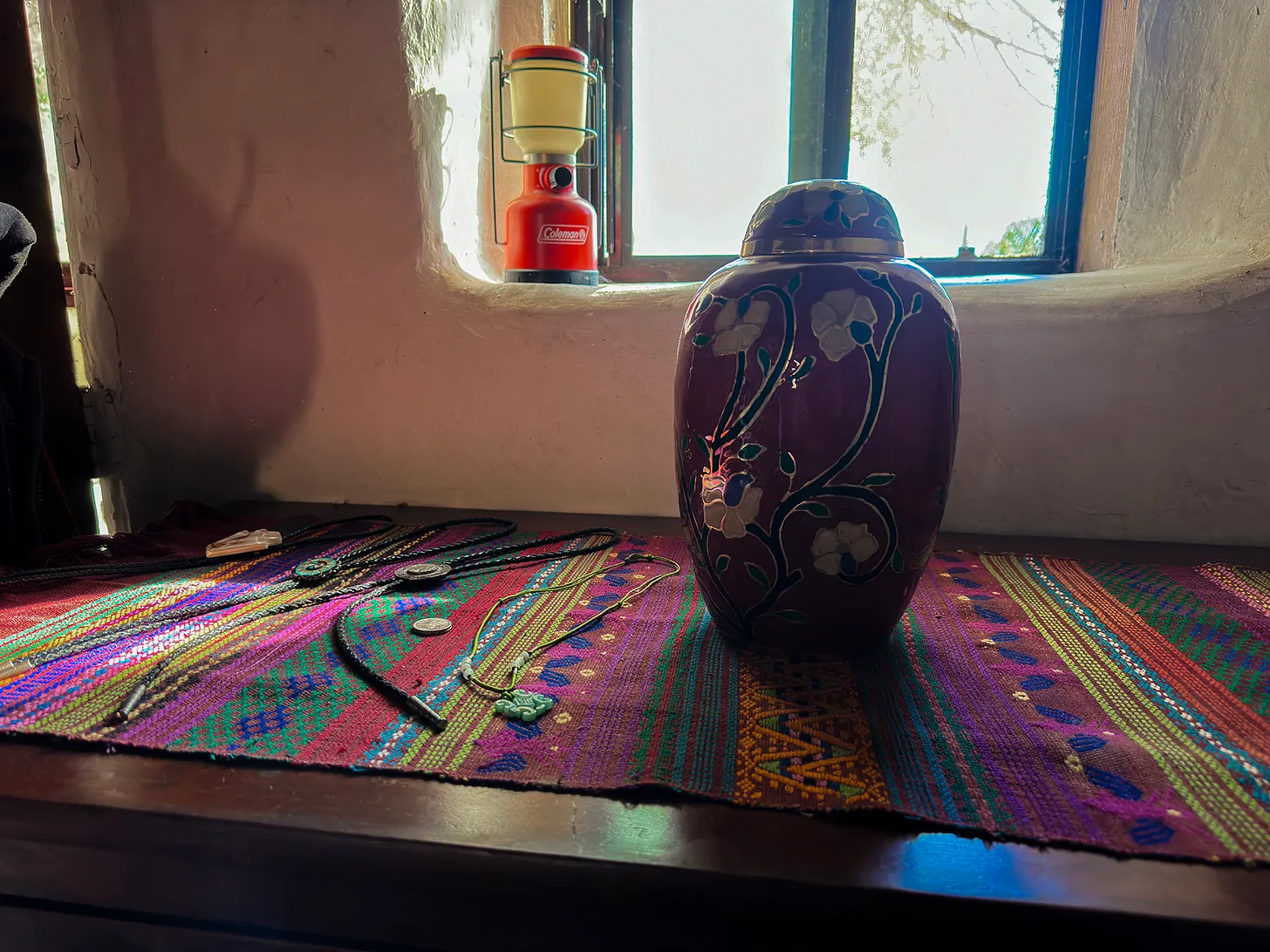
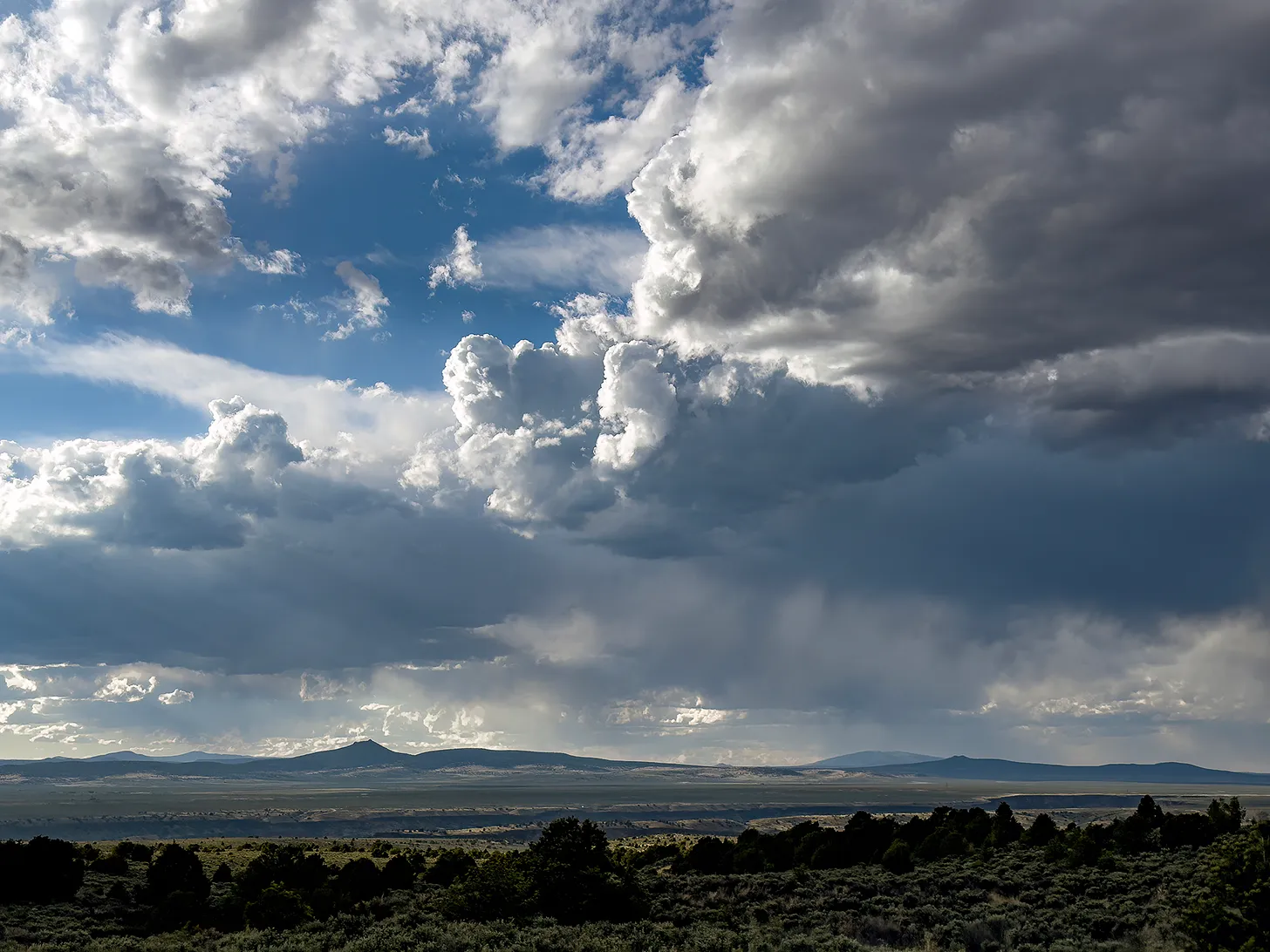
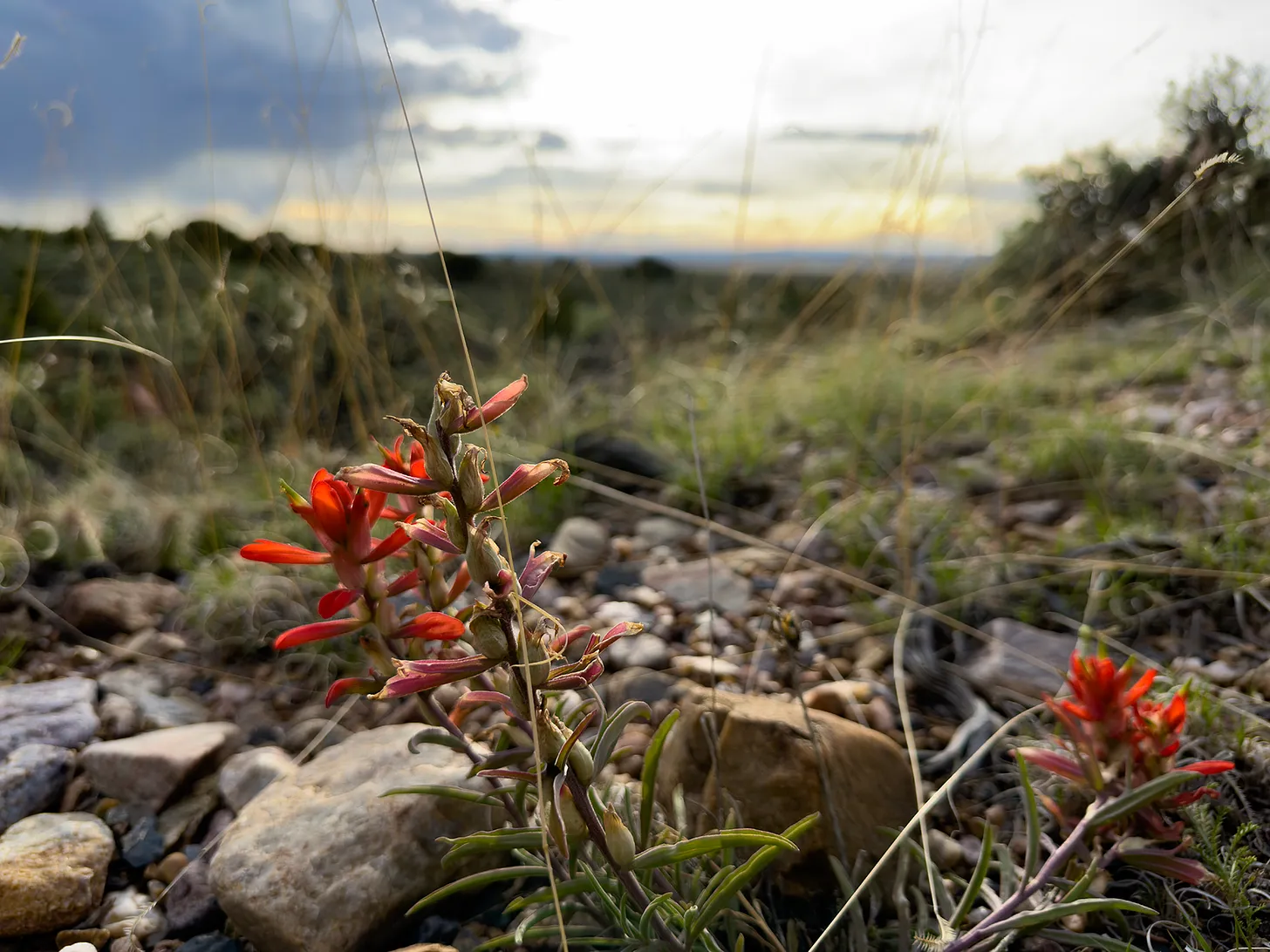
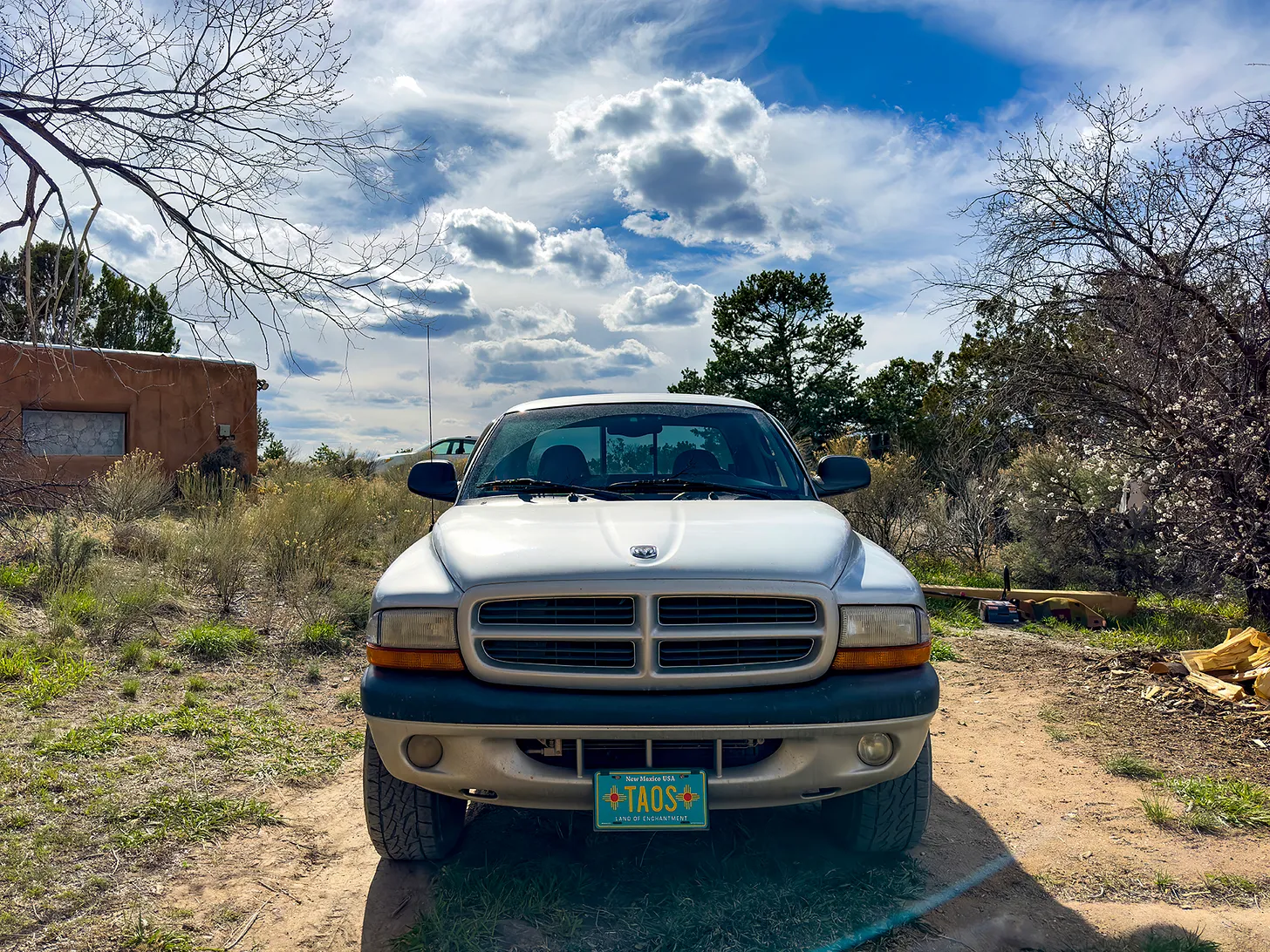

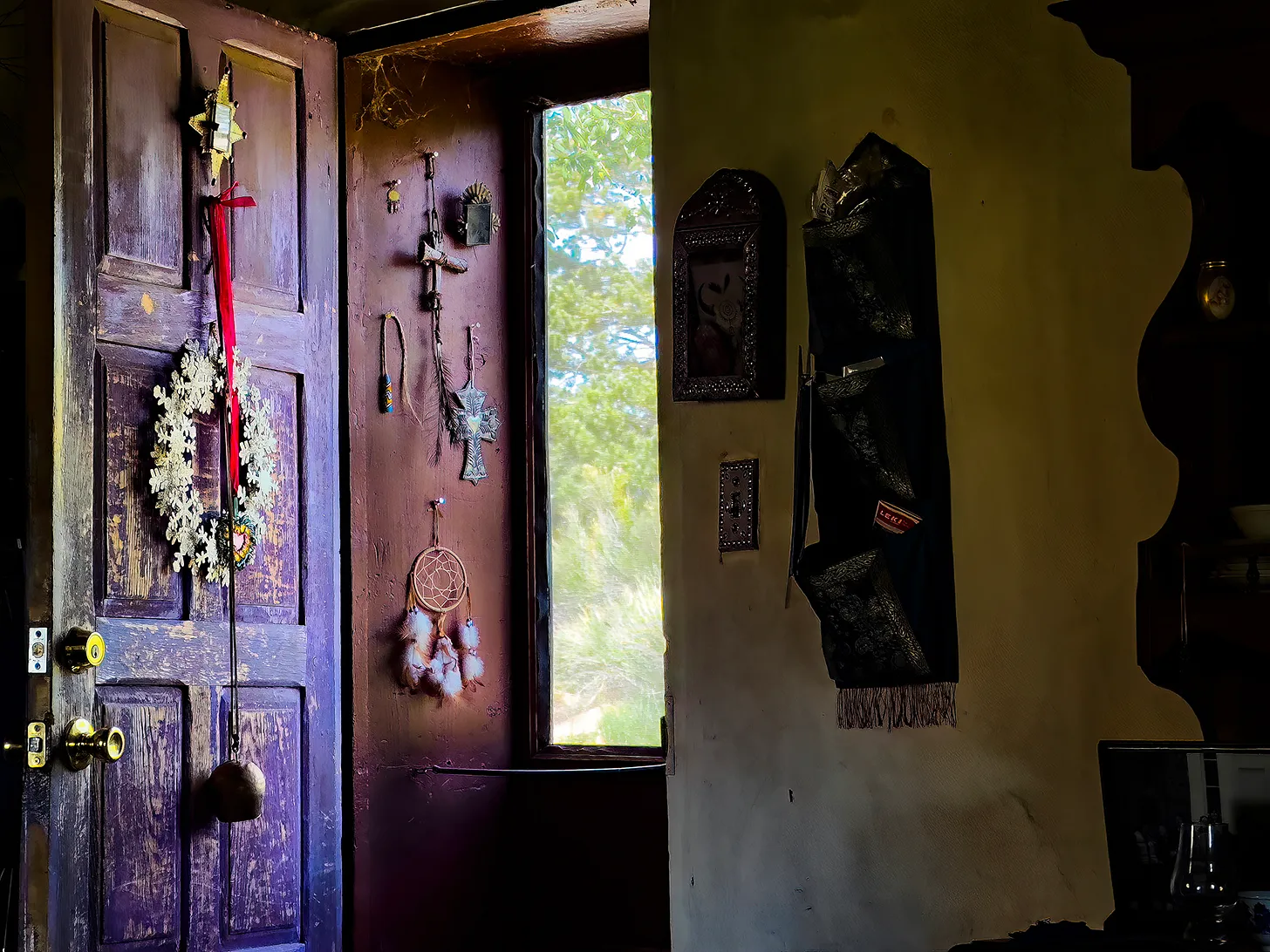

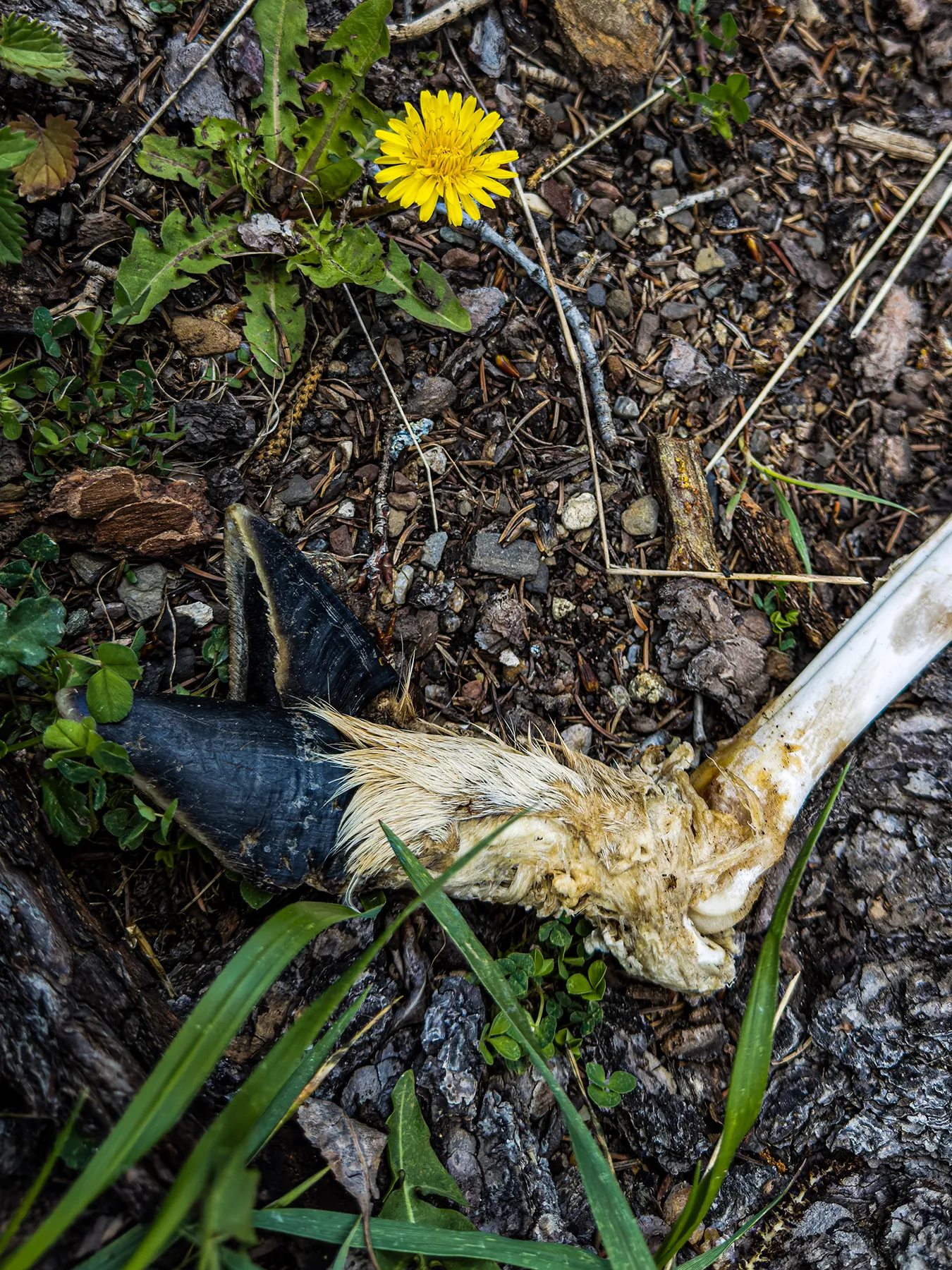
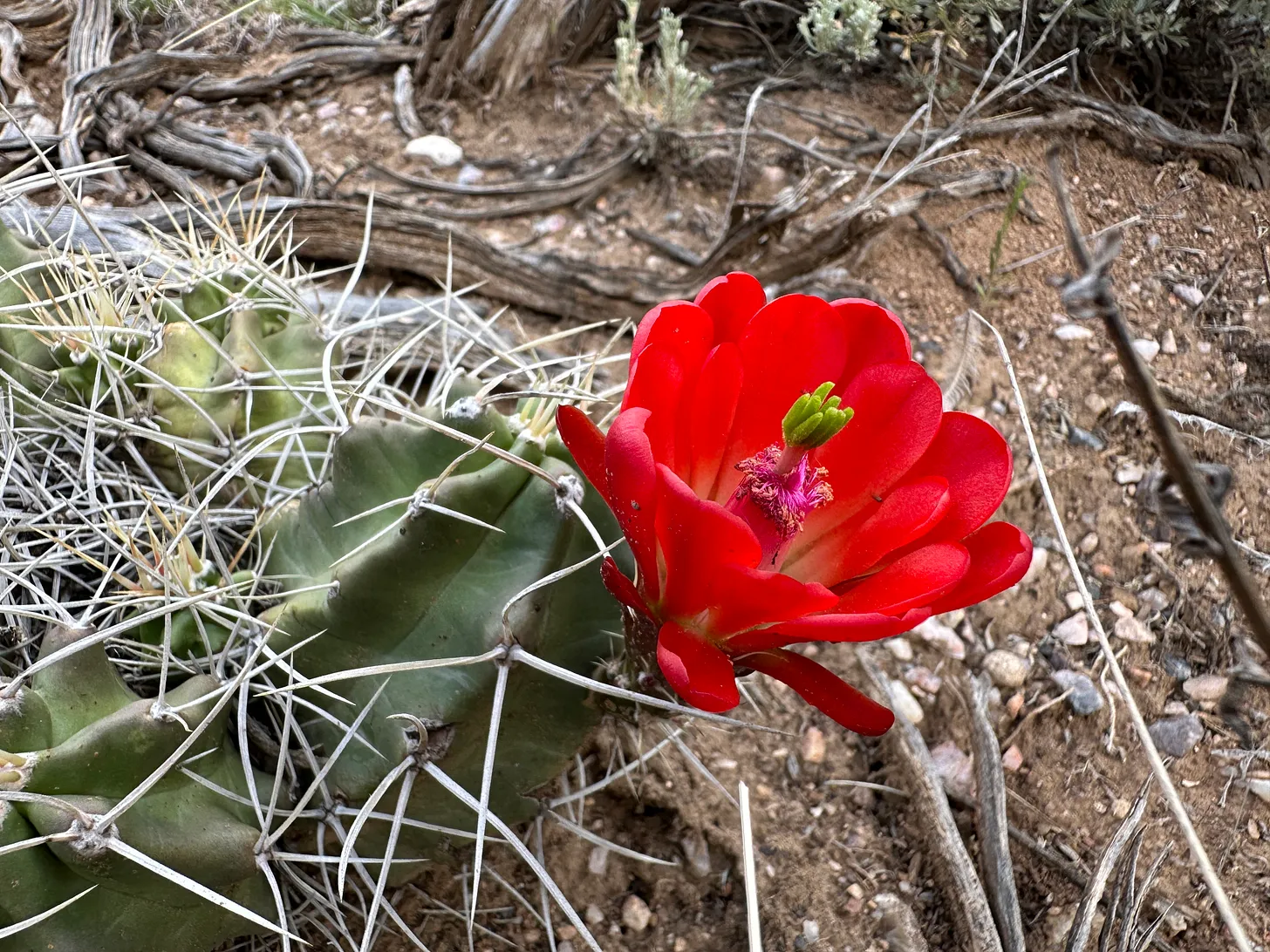
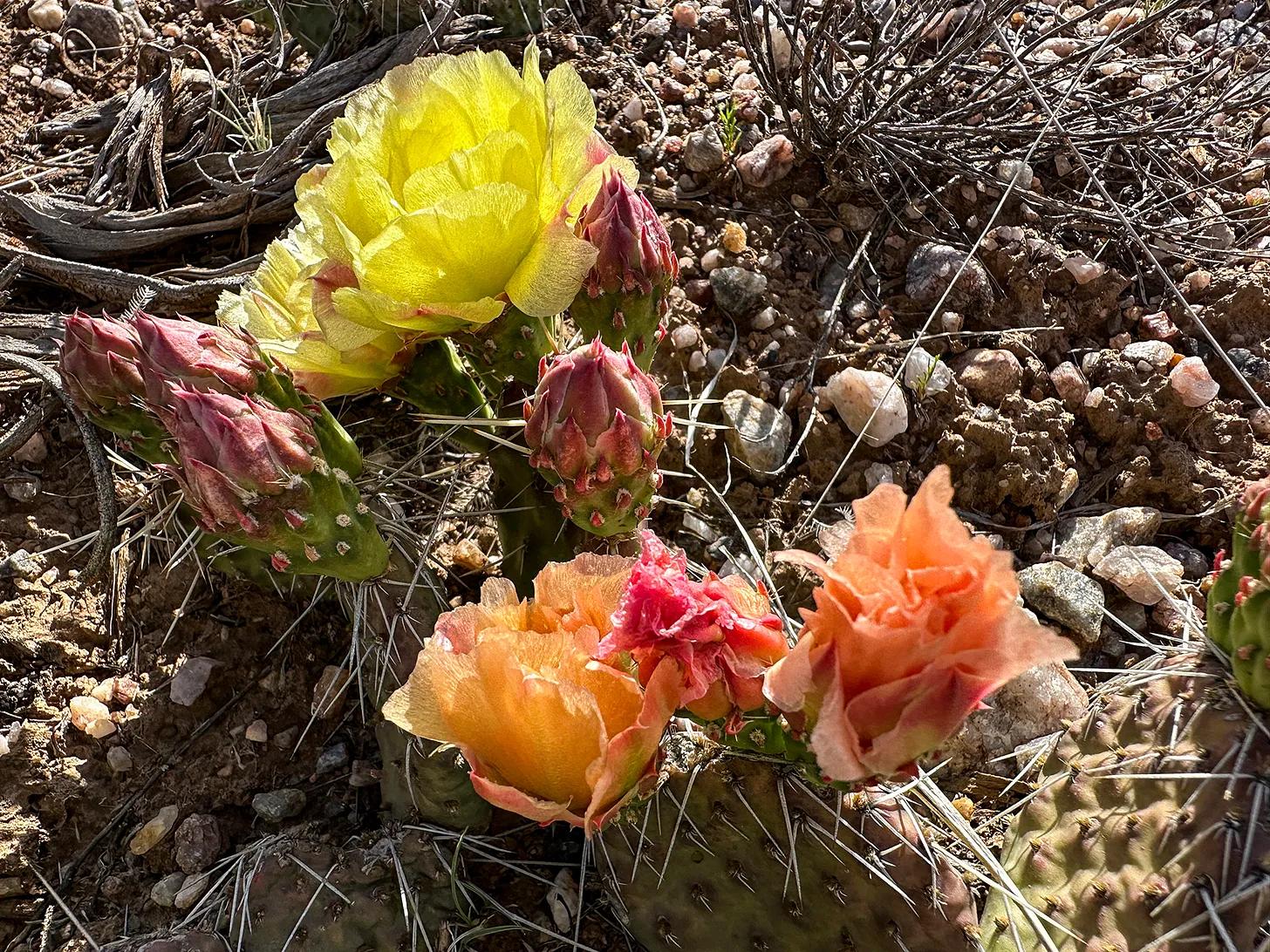
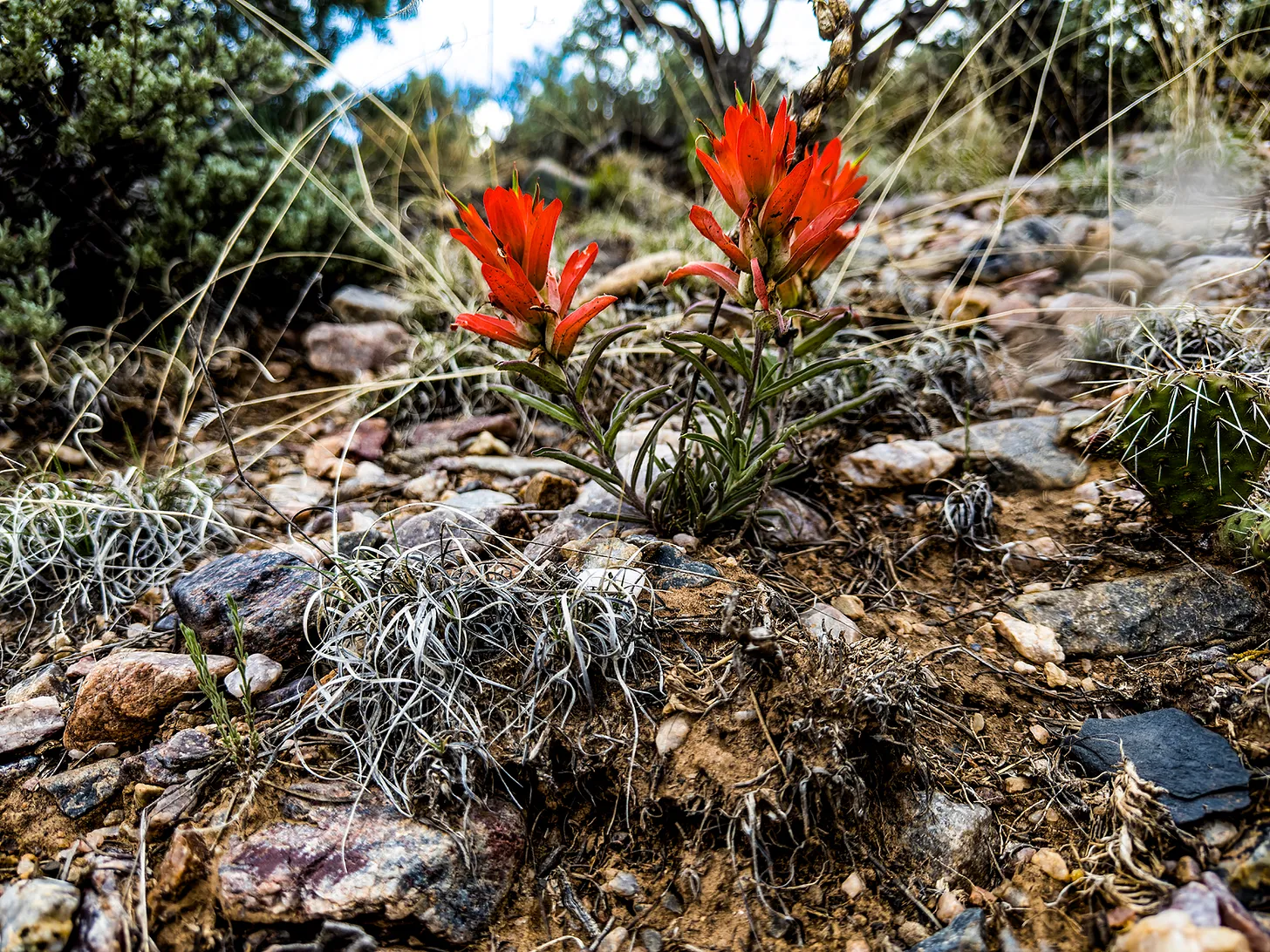
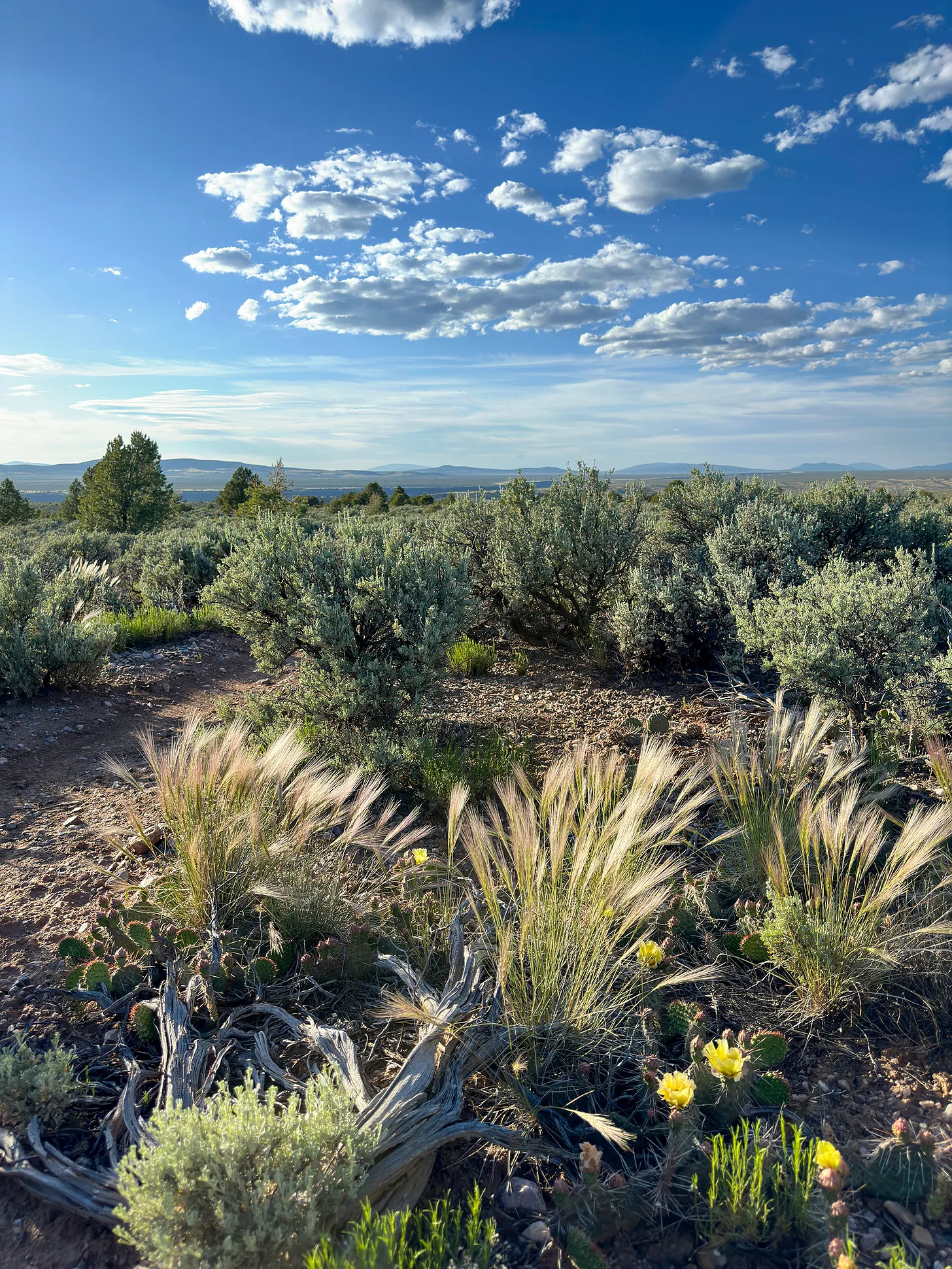




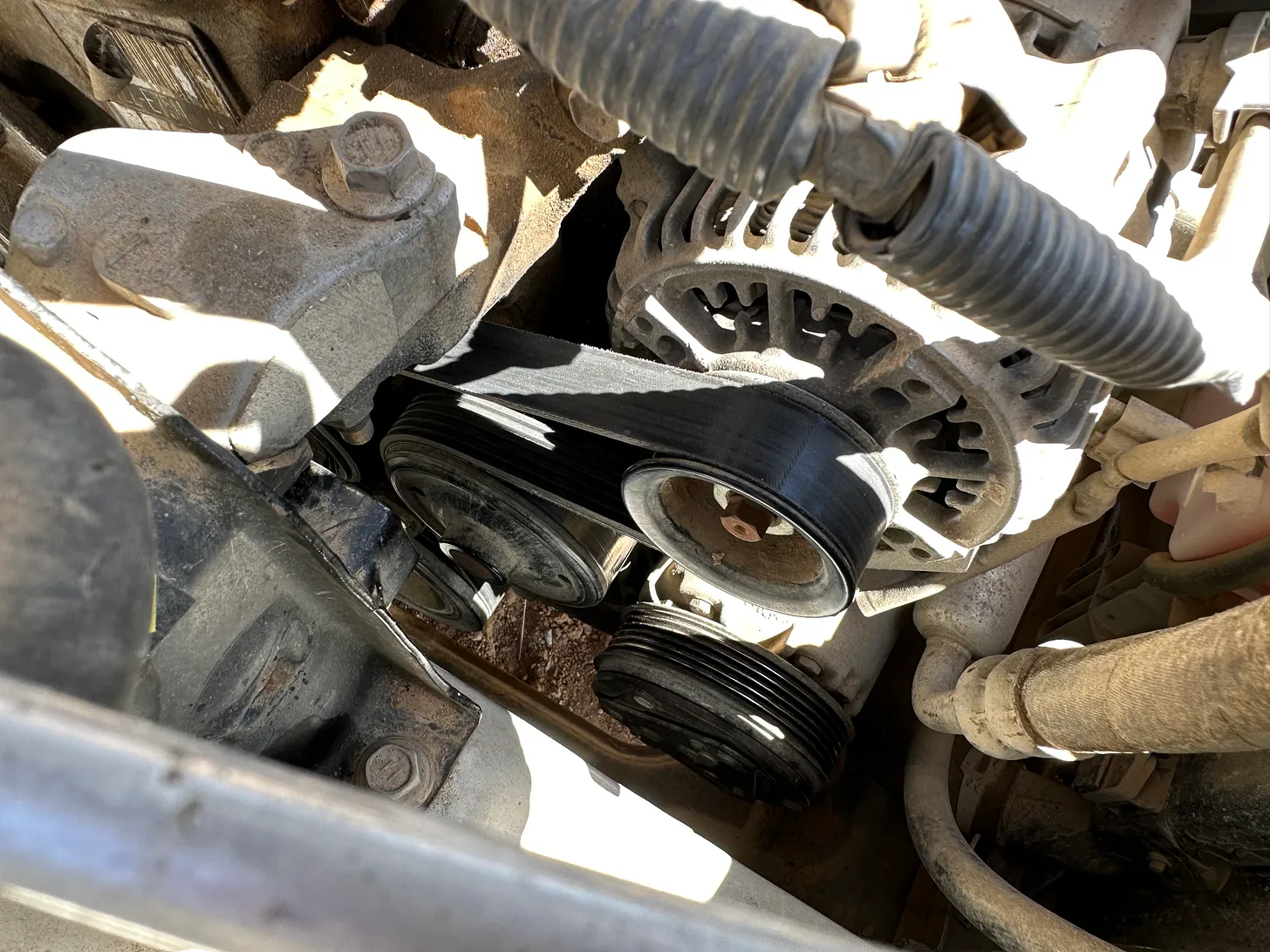
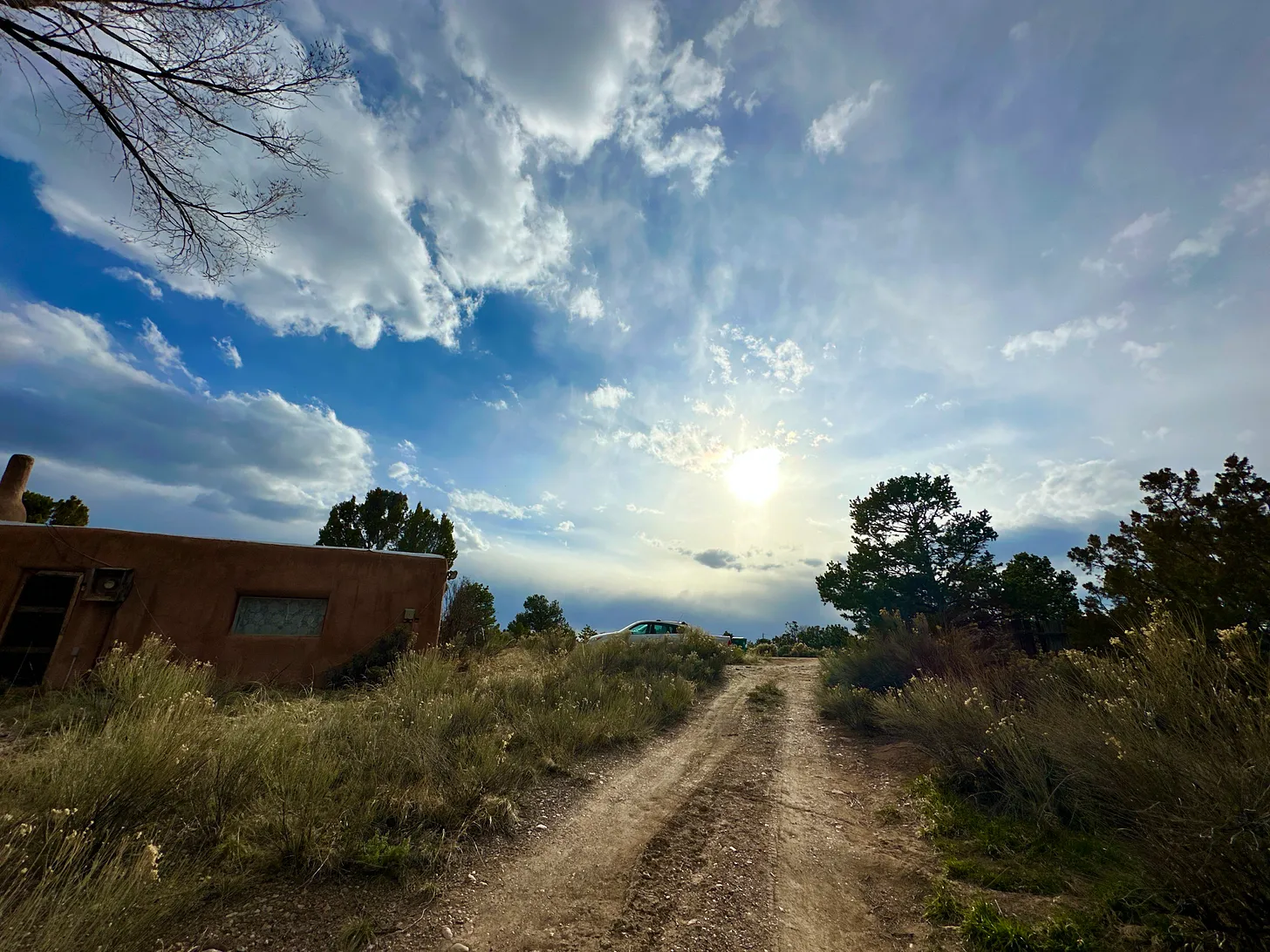
.png)